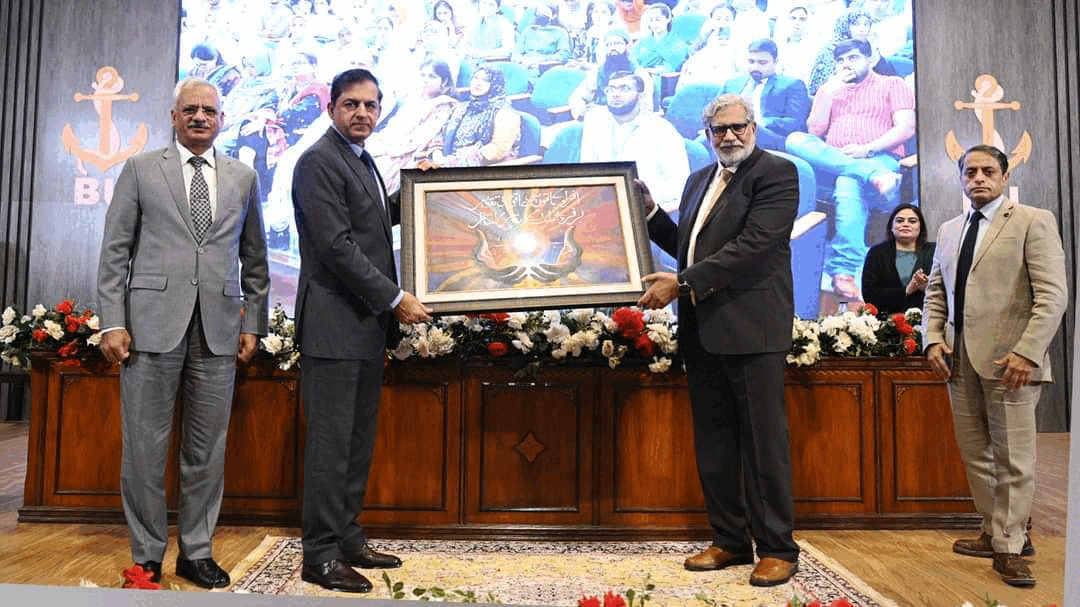Bahria University Explores Iqbal’s Philosophy of Selfhood
News Desk
Islamabad: Bahria University hosted its 6th Iqbal Conference across its campuses in Islamabad, Lahore, and Karachi, drawing attention to the relevance of Allama Iqbal’s philosophy in contemporary times.
Centered around the theme “Har fard hai millat ke muqaddar ka sitara” (Every Individual Shapes the Nation’s Destiny), the event emphasized the vital role of individual responsibility in national development, a core principle of Iqbal’s worldview.
Over 120 research abstracts and nearly 90 academic papers were presented by scholars, intellectuals, and researchers, exploring how Iqbal’s ideas intersect with modern societal challenges and can guide solutions for today’s issues.
Lt Gen Asghar highlighted the relevance of Iqbal’s teachings in today’s world, particularly the concept of Khudi (selfhood).
He stressed that fostering self-awareness, discipline, and empowerment, as envisioned by Iqbal, is crucial for personal growth and societal advancement.
Vice Admiral (Retd) Asif Khaliq, Rector of Bahria University, underscored the importance of integrating Iqbal’s values into modern education. He emphasized how Bahria University’s educational philosophy blends contemporary knowledge with ethical and spiritual principles, promoting character building and resilience among youth.
He emphasized how Bahria University’s educational philosophy blends contemporary knowledge with ethical and spiritual principles, promoting character building and resilience among youth.
Dr Saima Kalsoom, Conference Director, drew a parallel between Iqbal’s philosophy and modern psychological concepts, noting that Iqbal’s focus on virtues like courage and wisdom aligns with the principles of positive psychology.
Dr. Kalsoom also explored the role of self-regulation in fostering societal development, reinforcing Iqbal’s vision of self-realization contributing to collective prosperity.
Dr Muhammad Abid Ali, Chief Coordinator of the conference, expressed gratitude to all participants, faculty, and partners for their support in making the event a success. He also summarized the key discussions and outcomes, noting the significant impact of Iqbal’s philosophy on contemporary education and leadership.
The conference featured over 120 research abstracts and nearly 90 papers presented by scholars, intellectuals, and researchers, discussing the intersection of Iqbal’s thought with modern-day challenges.
Distinguished figures from the diplomatic and academic community attended the event, reinforcing the global relevance of Iqbal’s ideals in shaping ethical leadership and progress in the 21st century.
Through this conference, Bahria University reaffirmed its commitment to nurturing a generation that embodies Iqbal’s vision of individual excellence and national responsibility.

Comments are closed.